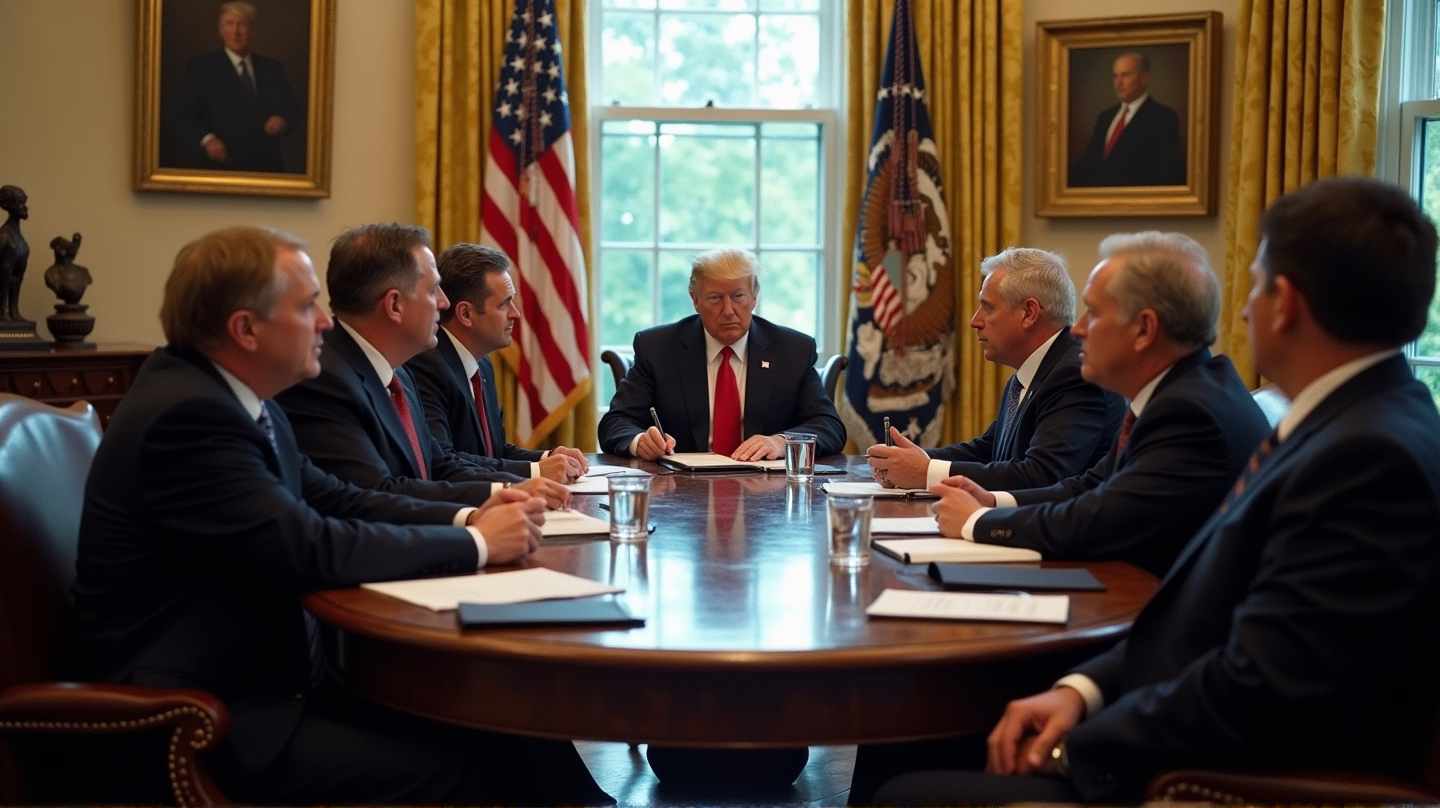White House May Shift Tariff Deadlines for Negotiating Nations
Some countries negotiating with the U.S. might see tariff deadlines extended as part of the latest economic strategy.

In an unexpected turn of events, the White House has hinted that certain countries negotiating trade deals with the United States might experience a shift in their tariff deadlines. This development was shared by the Chair of the White House Council of Economic Advisers, Stephen Miran, during an interview on ABC News’ “This Week” with George Stephanopoulos.
Miran’s Optimism Amidst Trade Talks
Stephen Miran expressed optimism regarding the ongoing trade negotiations, emphasizing that countries negotiating in good faith could have their tariff deadlines extended. This flexibility aligns with President Trump’s strategy to accommodate nations making necessary concessions. Miran noted, “If a deal is on the horizon but requires more time, an extension is likely on the table.”
The Decision Lies with President Trump
While specific countries were not named, Miran highlighted that good faith negotiations could influence deadline shifts. However, the ultimate decision rests with President Trump, who will weigh the potential economic benefits and fairness of extending deadlines.
Financial Reverberations and Speculations
As anticipated, former Treasury Secretary Larry Summers critiqued the potential economic repercussions of the tariffs. Summers pointed out potential inflation spikes and reduced competitiveness for U.S. producers. “Higher prices and reduced competitiveness may be the cost of this policy,” he warned.
Miran Stands by Economic Predictions
Miran defended the economic projections associated with the tariff strategy. Comparing the scenario with historical tax cuts, he argued that previous similar actions led to increased growth without significant revenue decline, asserting that current measures would replicate similar success.
Summers Challenges Economic Growth Claims
In contrast, Summers challenged Miran’s optimistic growth projections. He argued that prioritizing debt over investment in education and research could hamper long-term productivity. “This bill could well worsen economic conditions by increasing national debt,” Summers stated, echoing concerns prevalent among critics.
The Global Economic Tapestry
As the deadline approaches, eyes are on the negotiations between the U.S. and countries like Europe and India. The outcome could redefine their access to the American market, holding broader implications for global trade dynamics. The international community waits with bated breath, eager to see how these negotiations unfold and whether extensions will indeed be granted.
As stated in ABC News - Breaking News, Latest News and Videos, the decision-making process surrounding these deals will significantly impact the economic landscape both domestically and abroad. As the week progresses, anticipation mounts over the potential shifts in the global tariff timetable.





